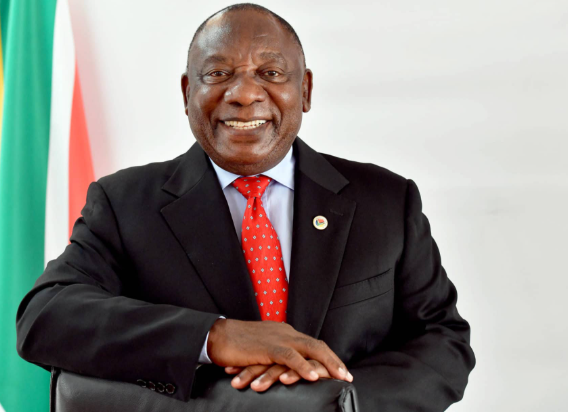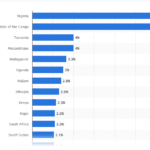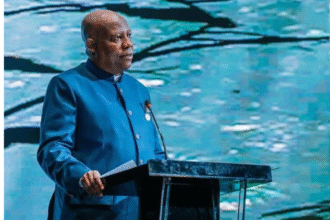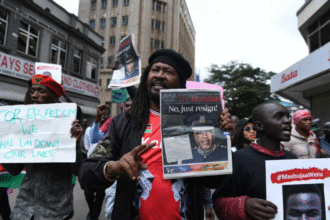By Mohamed Ghani
Johannesburg, South Africa – South African President Cyril Ramaphosa has strongly criticized a group of 59 Afrikaners who resettled in the United States under a controversial refugee scheme, labeling them “cowards” and suggesting their actions are rooted in opposition to transformation efforts in the country.
The group arrived in the US on Monday after being granted refugee status by the Trump administration, which claims that Afrikaners face racial discrimination in South Africa. The South African government has vehemently refuted these claims.
Speaking at an agricultural event in the Free State province on Monday, Ramaphosa stated, “As South Africans, we are resilient. We don’t run away from our problems. We must stay here and solve our problems. When you run away you are a coward, and that’s a real cowardly act.”
He further expressed confidence that the emigrants would eventually return, adding, “I can bet you that they will be back soon because there is no country like South Africa.”
The Trump administration’s decision to grant refugee status to the Afrikaner group has sparked significant controversy, particularly given its broader policies that have curtailed refugee admissions for those fleeing famine and war. Rights groups and refugee advocates have widely criticized the move, arguing that Afrikaners are neither victims of systematic discrimination nor a particularly vulnerable population.

President Trump defended the decision on Monday, responding to questions about prioritizing Afrikaners over victims of famine and conflict elsewhere in Africa. He claimed, without providing evidence, that “It’s a genocide that’s taking place.” He also stated his intention to discuss the issue with South Africa’s leadership next week.
However, President Ramaphosa countered Trump’s assertion, revealing that he had recently told the US President during a phone call that the US assessment was “not true.” He stated, “I told him that what you are being told by those people who are opposed to transformation back in South Africa is not true.”
The dispute comes amidst concerns over misinformation surrounding land reform in South Africa. The Trump administration has previously made unsubstantiated claims that white South Africans are having their land confiscated by the government under a new expropriation law. The reality is that no such land has been expropriated.
The situation highlights the complex dynamics of race, identity, and land reform in South Africa, and underscores the divergent perspectives between the South African and US governments on the perceived threats facing the Afrikaner community. The controversy is likely to further strain relations between the two nations.









